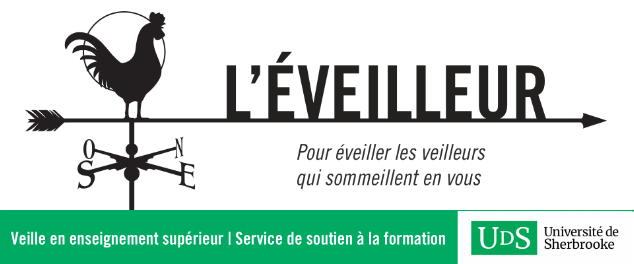Benjamin Bratton, professeur d’arts visuels à la University of California de San Diego, a prononcé le 14 décembre 2013 une conférence TEDxSan Diego qui critique sévèrement… les conférences TED! La conférence s’appelle « New Perspectives: What’s Wrong with TED Talks? » Intitulée “We need to talk about TED”, la transcription est devenue virale, particulièrement depuis que le site du journal The Guardian l’a reprise le 30 décembre dernier. Des défenseurs des conférences TED sont rapidement monté au front. Puisque nous avons souvent présenté ces conférences comme du matériel pédagogique intéressant, il semble essentiel que nous tenions compte de cette critique.
En gros, les arguments de Bratton sont les suivants: D’après lui, les conférences TED (Technology – Entertainment – Design)…
- simplifient à outrance les problèmes
- «Problems are not “puzzles” to be solved. That metaphor assumes that all the necessary pieces are already on the table, they just need to be rearranged and reprogrammed. It’s not true. »;
- font perdre leur temps aux intellectuels et à leur public, compte tenu de la gravité des problèmes actuels.
- « To be clear, I think that having smart people who do very smart things explain what they doing in a way that everyone can understand is a good thing. But TED goes way beyond that. […] Given the stakes, making our best and brightest waste their time – and the audience’s time – dancing like infomercial hosts is too high a price. It is cynical. »
- servent de placebos politiques et présentent des innovations placebo.
- « “Innovation” defined as moving the pieces around and adding more processing power is not some Big Idea that will disrupt a broken status quo: that precisely is the broken status quo. »
- promettent un futur radieux qui ne s’actualise pas (« …[T]the proposition that if we talk about world-changing ideas enough, then the world will change.»)
- présentent une rhétorique de témoignages personnels doublés de récits d’épiphanie (Bratton les qualifie d’infotainement, voire d’infomercials);
- « What is it that the TED audience hopes to get from this? A vicarious insight, a fleeting moment of wonder, an inkling that maybe it’s all going to work out after all? A spiritual buzz? »
- encensent exagérément les possibilités qu’offrent la technologie;
- « …TED’s version has too much faith in technology, and not nearly enough commitment to technology. It is placebo technoradicalism, toying with risk so as to reaffirm the comfortable. »
- devraient traiter, selon Bratton, davantage d’économie que de divertissement (entertainement) et du besoin de réinventer les systèmes économiques actuels;
- limitent le vrai potentiel du design;
- « …[D]esign as “innovation” just isn’t a strong enough idea by itself. We need to talk more about design as “immunisation,” actively preventing certain potential “innovations” that we do not want from happening. »
- distraient des exigences de connaissances et de travail que requièrent la complexité des problèmes que l’humanité rencontre.
- « If we really want transformation, we have to slog through the hard stuff (history, economics, philosophy, art, ambiguities, contradictions). Bracketing it off to the side to focus just on technology, or just on innovation, actually prevents transformation.
Instead of dumbing-down the future, we need to raise the level of general understanding to the level of complexity of the systems in which we are embedded and which are embedded in us. This is not about “personal stories of inspiration”, it’s about the difficult and uncertain work of demystification and reconceptualisation: the hard stuff that really changes how we think. »
- « If we really want transformation, we have to slog through the hard stuff (history, economics, philosophy, art, ambiguities, contradictions). Bracketing it off to the side to focus just on technology, or just on innovation, actually prevents transformation.
Sources:
Bratton, Benjamin, « We Need to Talk About TED », The Guardian, 30 décembre 2013
Tatiana B, « “We need to talk about TED” by Benjamin Bratton is going viral. Do you agree or disagree with his points? », TED Conversations, 1er janvier 2014






